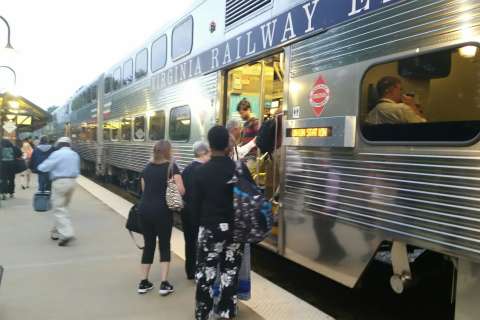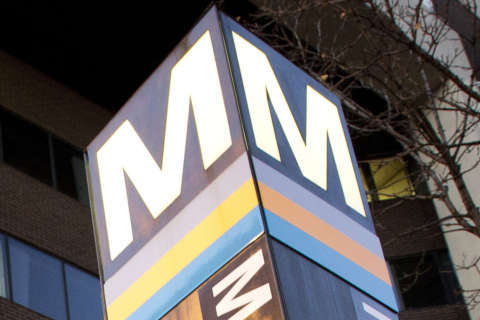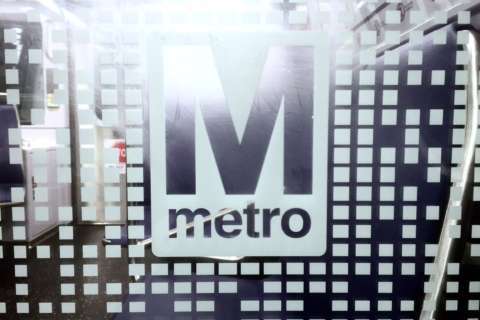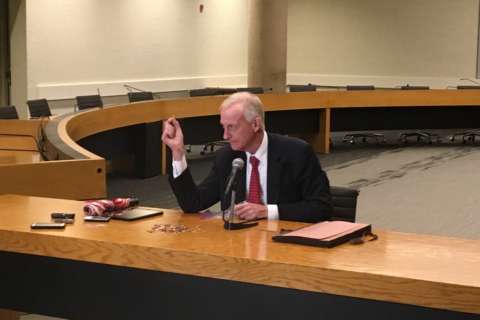WASHINGTON — A new Republican-backed plan for dedicated Metro funding emerged in Virginia’s House of Delegates Thursday morning.
The new version of a bill sponsored by Del. Tim Hugo, chairman of the Republican Caucus, was unanimously approved by the House Transportation Committee and will serve as a counter in negotiations with the state Senate over a final Metro funding bill. It would provide Metro $105 million a year, less than the roughly $150 million requested, and would only do so if Metro limits operating spending increases to 2 percent per year.
The bill also requires further studies and reports on Metro’s governance, labor agreements and the federal law that outlines arbitration rules, but it would not immediately require changes to Metro’s Board.
“Reforms have to go hand in hand with the money,” Hugo said.
Metro General Manager Paul Wiedefeld had proposed a 3 percent cap on operating spending increases, in conjunction with other changes, as part of his proposals last year. He went down to Richmond on short notice Thursday morning to support dedicated funding. The House bill is expected to get a final vote before next week’s “crossover” deadline — all bills except the budget bill have to pass at least one house to have a chance of becoming law during the session that ends March 10.
The House bill does not address the transit funding cliff that Virginia is facing separate from Metro, one which a Senate committee had suggested avoiding through, among other means, extending a sales tax to cover Uber and Lyft rides.
The Senate’s Metro funding proposal more closely tracks the proposal submitted by then-Gov. Terry McAuliffe, which called for an increase in certain Northern Virginia taxes to levels previously approved by the General Assembly as part of a 2013 statewide transportation funding agreement. The rates were lowered to current levels before the bill was signed into law.
‘Not willing to raise taxes’
House Speaker Kirk Cox opposes those tax increases.
“We are not willing to raise taxes to specifically generate money for Metro,” he said Thursday.
The $105 million for Metro in Hugo’s House bill would come from three places: $30 million from the existing state recordation tax and part of an existing 1 percent motor vehicle rental tax, another $30 million from an existing transient occupancy tax and $45 million from local governments’ shares of regional sales tax revenue used for road and other transportation projects.
Proposals to set a minimum level on the regional gas tax also remain alive, and the money from one of those could still be added to this total, for Metro to get closer to $125 million per year.
House Appropriations Committee Chairman Chris Jones acknowledged the bill is still early in a multistep process.
The bill is contingent on Maryland and the District approving their own funding streams. At the $125 million level, the region would come up $125 million short of the $500 million request that Wiedefeld said was needed for critical capital projects including some basic maintenance and repairs.
“Something’s better than nothing, which is good, but if we don’t get to the $500 million, it does put us in a tough situation here at Metro,” Metro Board Chairman Jack Evans said after Metro Board committee meetings Thursday.
While he is heartened that Virginia is on track to pass some kind of dedicated funding, Evans warned of fare hikes or additional service cuts if the additional capital funding comes up short.
In addition, Evans warned that a 2 percent cap on increases to the overall operating budget would be hard, since even Wiedefeld’s proposal of 3 percent does not account for certain labor or operating costs that are already planned.








